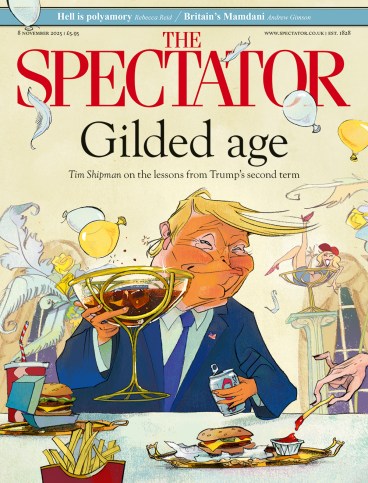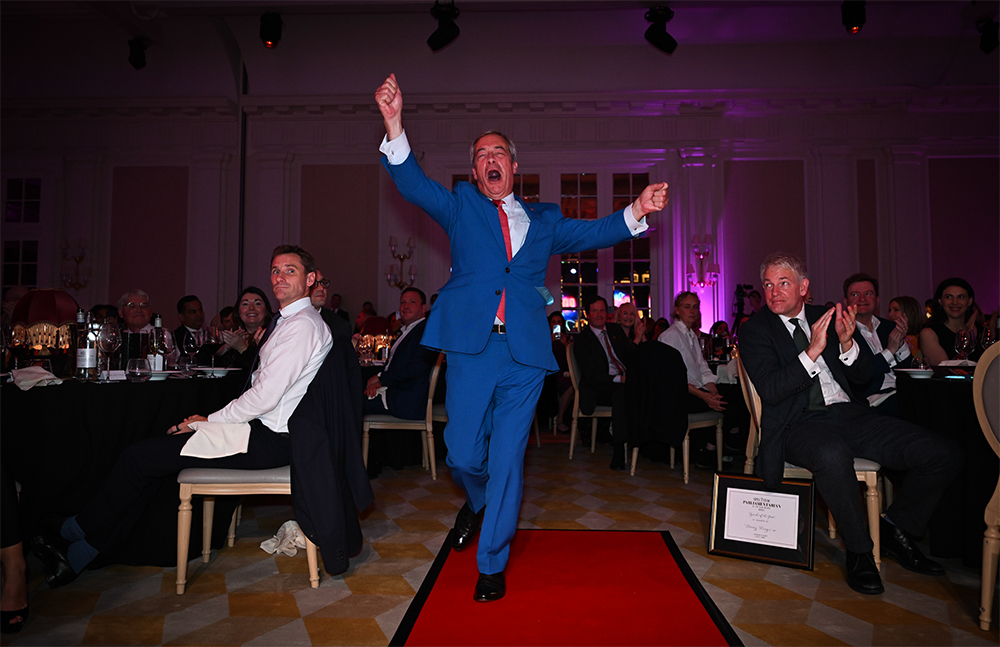
Critics see Rachel Reeves as betraying her election manifesto tax promises; but she may well be trying ‘The Lady’s Not for Turning’ gambit. Her speech from Downing Street delivered before the markets opened on Tuesday, resembled – in content, if not in style – Margaret Thatcher’s 1980 party conference speech. In both cases, the incoming government had failed to get public spending and borrowing under control. (Indeed, government borrowing costs then were 6 per cent of GDP, compared with a mere 5.1 per cent today.) Also in both cases, the government sought simultaneously to go against earlier promises not to raise taxes, yet to do so in the name of long-term consistency. Both faced what was then called ‘a funding crisis’ in the bond market. When the 1981 Budget came along, it put up taxes, chiefly by not indexing tax thresholds. Famously, it was attacked in a letter to the Times by 364 economists who preferred reflation. The fact that Ms Reeves speaks suddenly, so soon before the Budget, has a panicky, emergency air which Mrs Thatcher also felt but more successfully concealed. Their situation is similar – apparent policy failure and the prospect of a collapse of public, market and political confidence. In 1981, however, Mrs Thatcher pulled through, starting to reap economic rewards the following year. Perhaps Ms Reeves will achieve a comparable upturn. I do doubt it, though. In the run-up to the 1981 Budget, Nigel Lawson, then a rising star in government, made a speech asserting the coherence of ‘Thatcherism’, a word not previously used by ministers. As he explained afterwards: ‘A necessary precondition of economic success is a fundamental business optimism based on self-belief and the will to succeed. Defeatism, the characteristic of pre-Thatcher Britain, is invariably self-fulfilling.’ In 1981, enough people believed in Thatcherism to see the chink of light through the dark clouds. I have not met a single businessman or woman who, faced with Ms Reeves, discerns such a gleam today.
Last week’s Spectator Parliamentarian of the Year Awards were very jolly. There were witty speeches by Ed Miliband (by video), Shabana Mahmood, Sir James Cleverly and our editor, who compered. The only sour notes came from Reform, who won four awards but hubristically pre-gloated about a general election victory. Danny Kruger displayed charm, but Nigel Farage, Zia Yusuf and, to a lesser extent, Andrea Jenkyns spent most of their speeches announcing that Reform would chuck the rest of us into the dustbin of history. I realised afterwards that these bad manners were an electoral calculation. People hate politicians of different parties being chummy – so Reform being seen hobnobbing (and, as tabloids always put it, ‘guzzling fine wines’) with the detested mainstream was a major reputational risk. For a popular audience, therefore, Reform had to accept our awards gracelessly, as if Dale Carnegie had written a book called How to Lose Friends and Influence People.
Rod Liddle eviscerates the BBC’s coverage of Gaza, Donald Trump and whomever else it hates. The Telegraph’s latest reports of an internal memo on how BBC news and current affairs are spliced and slanted reveal how much effort goes into propaganda. The BBC runs a small unit (60-strong) called BBC Verify, which attracts justified mockery. Its much larger news outfit – c. 7,000-strong – should be called BBC Falsify.
The full trail-hunting season has now started, under the shadow of the government’s proposed ban. At the opening meet I attended south of the Thames, we were over a hundred people mounted, mostly enthusiastic girls and young women – I have never seen so many false eyelashes – and the usual clutch of black-clad antis lurking. We met at a fruit farm which employs seasonal foreign workers. My horse is nearly 18 hands high, so I always need help to mount him. Down the path came two of the workers. I guessed their country of origin from their physiognomy. ‘Where are you from?’ I said, asking the famous question which can get one into so much trouble, ‘Kyrgyzstan?’ Yes, they said. ‘How nice,’ I replied, ‘I recently went riding there and it was lovely. Would you mind giving me a leg-up?’ They expertly, smilingly did so. This happy meeting showed that globalisation has its pluses.
Do look at a lovely little book, on related matters, by the indefatigable Charlie Pye-Smith, just out. It is called Rural Voices and consists largely of short interviews with hunting people – including a substance misuse worker, a funeral director, a clinical geneticist, a milkman, a gardener, a lorry driver, a shepherd, a chaplain, a barrister, a philosopher, an artist, an underwriter and Sarah Jo, a friend of mine who is a special needs adviser. Their words are eloquent: the truth is great and will prevail.
On All Saints’ Day last week, St John Henry Newman was proclaimed a Doctor of the Church. I do realise that you cannot be sanctified, or even be made doctoral, for your use of language alone, but it is important to the quality and spread of Newman’s thought that he wrote so well. Most of his greatness lies in his prose, but it appears in his verse too. ‘Praise to the Holiest in the height’ is now well known as a hymn, but it was composed as a recurring part, varying like a musical theme, of The Dream of Gerontius. Here he is describing what Jesus effected through his incarnation and Passion:
‘O generous love! that He who smote
In man for man the foe,
The double agony in man
For man should undergo;
And in the garden secretly,
And on the cross on high,
Should teach His brethren and inspire
To suffer and to die.’
That could scarcely be more economical, or more poetic.








Comments